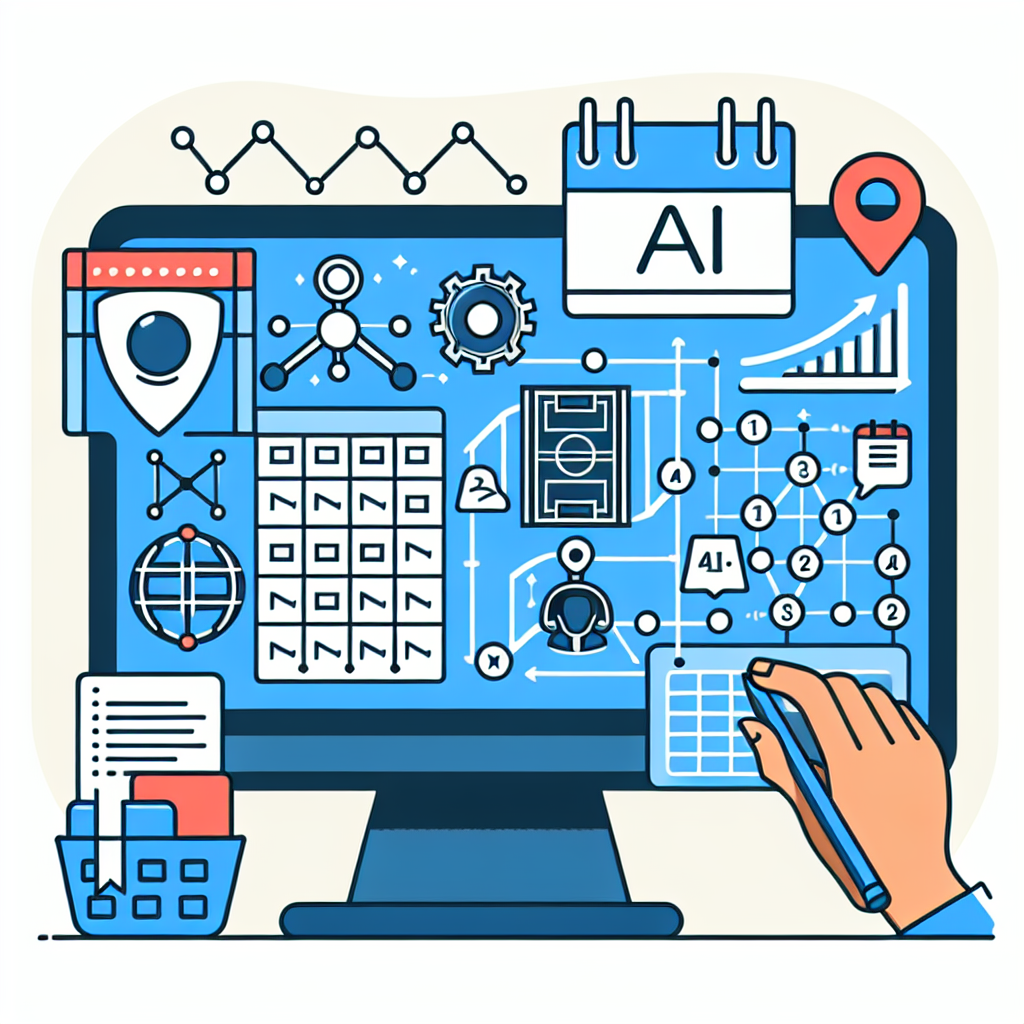Artificial Intelligence (AI) has revolutionized many industries, including sports scheduling. The optimization of sports scheduling has always been a complex and challenging task, with numerous factors to consider such as venue availability, team travel logistics, and fan preferences. AI has the ability to analyze large amounts of data in real-time, leading to more efficient and effective scheduling solutions.
One of the key advantages of using AI in sports scheduling is its ability to consider a wide range of variables simultaneously. Traditional scheduling methods often rely on manual input and trial-and-error approaches, which can be time-consuming and error-prone. AI can take into account factors such as team performance, player availability, and historical match data to generate schedules that maximize fairness and competitiveness.
AI algorithms can also adapt to changing conditions and constraints in real-time, allowing for more flexibility and responsiveness in scheduling decisions. For example, if a team unexpectedly has to reschedule a match due to a player injury, AI can quickly generate alternative scheduling options that minimize disruptions to the overall season calendar.
In addition to improving the efficiency of scheduling, AI can also enhance the fan experience by creating more engaging and exciting match-ups. By analyzing fan preferences and historical data, AI can identify key rivalries and matchups that are likely to generate high levels of interest and attendance. This can help sports leagues and organizations maximize revenue and fan engagement by scheduling games that are most likely to attract a large audience.
Furthermore, AI can also optimize travel logistics for teams, reducing costs and minimizing fatigue for players. By analyzing factors such as distance between venues, time zones, and team preferences, AI can generate schedules that minimize travel time and ensure that teams have adequate rest between matches. This can help improve the overall performance and well-being of players, leading to a more competitive and exciting sports season.
Overall, the use of AI in sports scheduling has the potential to revolutionize how matches are scheduled and organized, leading to more efficient, fair, and engaging sports seasons. By leveraging the power of AI algorithms, sports leagues and organizations can improve the overall fan experience, maximize revenue, and enhance the performance and well-being of players.
FAQs:
Q: How does AI optimize sports scheduling?
A: AI optimizes sports scheduling by analyzing large amounts of data in real-time, taking into account factors such as team performance, player availability, historical match data, and fan preferences to generate schedules that maximize fairness, competitiveness, and fan engagement.
Q: What are the advantages of using AI in sports scheduling?
A: The advantages of using AI in sports scheduling include improved efficiency, flexibility, and responsiveness in scheduling decisions, enhanced fan experience through more engaging match-ups, and optimized travel logistics for teams.
Q: Can AI adapt to changing conditions and constraints in sports scheduling?
A: Yes, AI algorithms can adapt to changing conditions and constraints in real-time, allowing for more flexibility and responsiveness in scheduling decisions. AI can quickly generate alternative scheduling options that minimize disruptions to the overall season calendar.
Q: How does AI enhance the fan experience in sports scheduling?
A: AI enhances the fan experience in sports scheduling by creating more engaging and exciting match-ups, identifying key rivalries and matchups that are likely to generate high levels of interest and attendance. This helps sports leagues and organizations maximize revenue and fan engagement.
Q: How does AI optimize travel logistics for teams in sports scheduling?
A: AI optimizes travel logistics for teams by analyzing factors such as distance between venues, time zones, and team preferences to generate schedules that minimize travel time and ensure that teams have adequate rest between matches. This can improve the overall performance and well-being of players.

